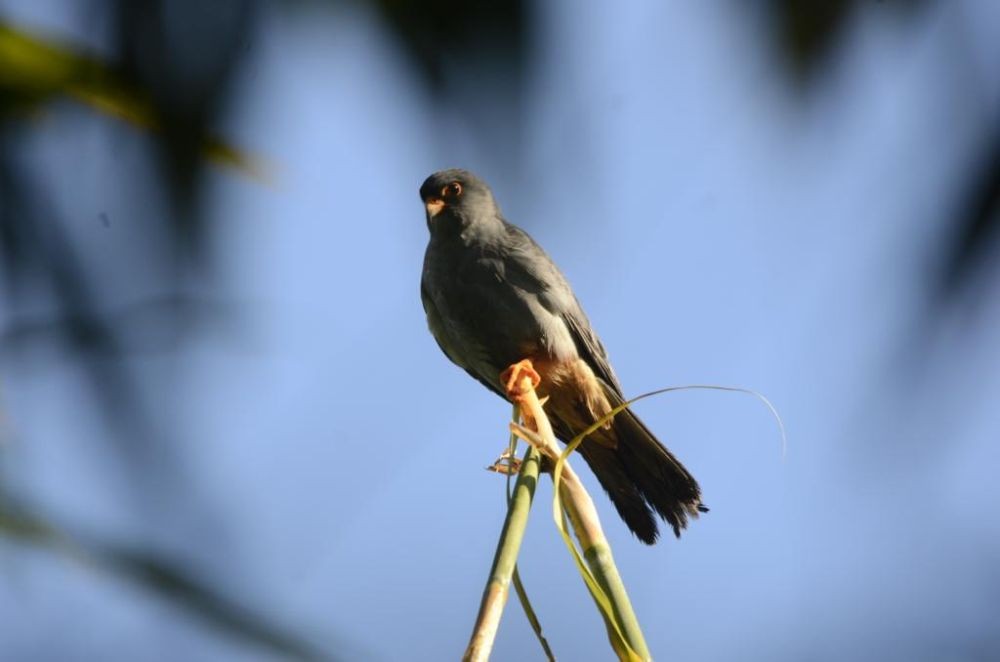IANS Photo

Kohima/Imphal, October 26 (IANS) In a heartwarming annual event, the migratory Amur falcon has begun arriving in Nagaland, and the forest department, in collaboration with various NGOs and bird lovers, has made all efforts to protect and provide support to the seasonal winged guests.
These majestic birds, locally known as 'Molulem', embark on an incredible long-distance journey, travelling up to 22,000 km in a single year, all the way from eastern Asia to South Africa and back during early autumn.
Similarly, forest officials and animal lovers of Zeliangrong Naga-dominated Tamenglong district in Manipur, are also gearing up to protect the Amur falcons, with the district administration putting a ban on hunting, catching, killing and selling of the migratory birds besides prohibiting the use of air guns during the raptors’ roosting period.
The Amur falcons are locally known in Manipur as ‘Akhuaipuina’.
A Nagaland forest official said that the state serves as a crucial stopover for these birds -- which at times number up to 100,000 -- for rest and refuelling for a duration of three to four weeks during winter.
Their presence holds immense ecological importance, as they naturally regulate pest populations and participate in vital pollination activities, he said.
The dedicated efforts of both the state government and the public have significantly contributed in providing a secure passage to these avian species over the years.
As a result, Nagaland has proudly earned the well-deserved title of 'Amur Falcon capital of the world', an official said.
The Amur falcon has been granted legal protection under the Wildlife (Protection) Act of 1972. Hunting these birds or possessing their meat is a serious criminal offense, punishable by imprisonment for up to three years under the provisions of the Act.
Wildlife experts said that the long-distance migratory birds usually arrive in Manipur, Nagaland and Assam in mid-October from their breeding grounds in South Eastern Siberia and Northern China.
After a stop over in Nagaland, Manipur and few other northeastern states for around a month, the falcons and fly towards Southern and Eastern parts of Africa and roost a short time before moving towards their breeding grounds.
Nagas and other tribals, known for their love for meat, had for decades considered these birds as ‘god-sent’ when they had first arrived till 2012.
Thousands of birds were caught and consumed every year before 2012, but massive efforts involving villagers to protect the migratory birds in Nagaland have resulted in near-zero casualties since 2013.






